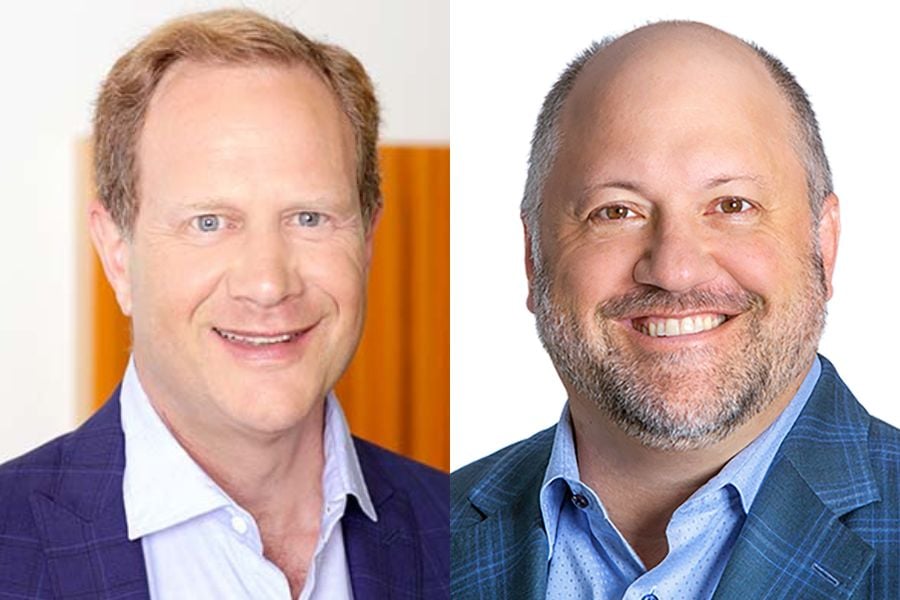

Investing in artificial intelligence stocks hasn’t been that, well, intelligent a move these past few weeks. And certainly not “magnificent.”
To wit, the Roundhill Magnificent 7 ETF (Ticker: MAGS), which surged to nosebleed heights due to its AI affiliation, is down almost 15 percent in the past month thanks to increased uncertainty over the true extent of AI’s transformational ability, a 20 percent decline in AI-chipmaker Nvidia (Ticker: NVDA), as well as good old-fashioned profit-taking. Similarly, the iShares Robotics and Artificial Intelligence Multisector ETF (Ticker: IRBO), which more directly tracks AI-directed stocks, has dropped almost 9 percent over the same period.
So what should financial advisors do with their still-elevated AI positions after this cruel summer?
“It’s a legitimate debate about the pace of growth in the future, and the appropriate valuation, but the best performers will be those that generate the most profits. That has been mostly the large tech companies, not just over the past year, but over the past decade or more,” said Michael Rosen, chief investment officer at Angeles Investments. “I suspect that is likely to continue for the foreseeable future.”
In Rosen’s view, the double digit drop in the past month of AI-related stocks may be a revaluation to more appropriate levels, and likely within the normal or expected course with high beta stocks. That said, he doubts it signals that AI was purely hype and that these stocks will tumble like internet high-fliers in the 2000 bubble.
Meanwhile, Tim Harder, chief investment officer at Quotient Wealth Partners, believes the downturn in the Magnificent 7 is exposing one of the great conundrums for professional money managers. In his view, the last few years for investors have been all about limiting tracking error so as not to be left out of the rally, as well as managing risk relative to the market.
Now, he says investors face the reality that this handful plus of stocks makes up such a substantial proportion of the market that “we are introducing absolute risk and potentially putting investors financial plans at risk.”
“For our clients that are focused on the sustainability of their retirement portfolio, the absolute risk of being so concentrated in so few investments has led us to the path of avoiding additional, or beyond market allocation, exposure by maintaining diversification outside of US large cap stocks whether that be bonds, international, small cap or even alternatives to traditional long-only strategies,” said Harder.
Harder also points out that investors that have large capital gains in the Magnificent 7 may also be paralyzed by the tax consequences of reducing those holdings.
“With volatility spiking, the cost of managing risk through the options market is substantial and long-term capital gains taxes and selling to reduce risk might seem like a bargain,” added Harder.
Elsewhere, Patrick Poling, senior portfolio manager at Southern Oak Wealth Group, part of Sanctuary Wealth, is staying bullish on AI stocks even as he straps himself – and his clients – in for even more volatility in the coming months.
“The rising tide in the AI play over the past fifteen months has helped a lot of stocks reach new highs - even some that may have just been riding the coattails of the trend,” said Poling. “Some have compared the recent AI run to the dotcom bubble, and we do not agree with that assessment when it comes to the more established names that were doing well before this recent upswing.”
That said, he does caution against putting money into any AI-related stocks that seem to be on a run based on “pure hope.”
“For new money, we are adding methodically to the names we trust the most over the next seven to nine months,” said Poling.
Finally, Atish Davda, CEO of EquityZen, offers another way for investors to get their fill of AI stocks, but without having to worry about the short-term volatility of owning publicly traded stocks. His company offers advisors the ability to buy pre-IPO shares, and he says AI-related private companies are in high demand despite their elevated risk.
“This is absolutely not meant to replace your public equities portfolio,” said Davda. “This is designed to be an alternative investment. And more and more research keeps coming out that the ultra-high net worth individuals put 30, 40, 50 percent of their allocations in alternatives. But the vast majority of the investor base has 0 to 1 percent. And more and more that is going from 1 to 2 to 3 to 4 and even five percent. And that's the growth sleeve of the portfolio that we're talking about here.”

Eliseo Prisno, a former Merrill advisor, allegedly collected unapproved fees from Filipino clients by secretly accessing their accounts at two separate brokerages.

The Harford, Connecticut-based RIA is expanding into a new market in the mid-Atlantic region while crossing another billion-dollar milestone.

The Wall Street giant's global wealth head says affluent clients are shifting away from America amid growing fallout from President Donald Trump's hardline politics.

Chief economists, advisors, and chief investment officers share their reactions to the June US employment report.

"This shouldn’t be hard to ban, but neither party will do it. So offensive to the people they serve," RIA titan Peter Mallouk said in a post that referenced Nancy Pelosi's reported stock gains.
Orion's Tom Wilson on delivering coordinated, high-touch service in a world where returns alone no longer set you apart.
Barely a decade old, registered index-linked annuities have quickly surged in popularity, thanks to their unique blend of protection and growth potential—an appealing option for investors looking to chart a steadier course through today's choppy market waters, says Myles Lambert, Brighthouse Financial.
